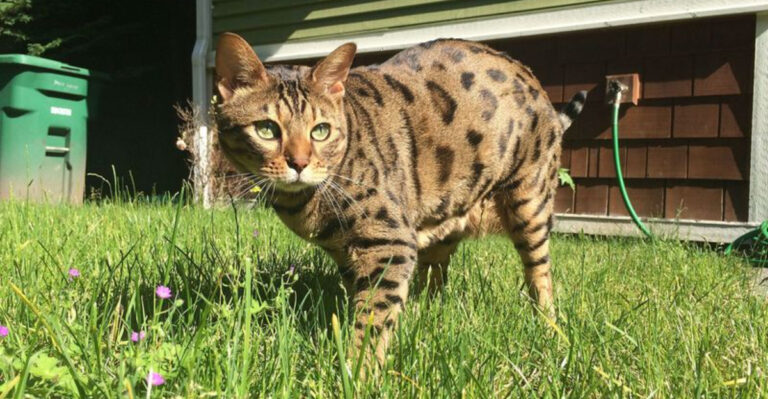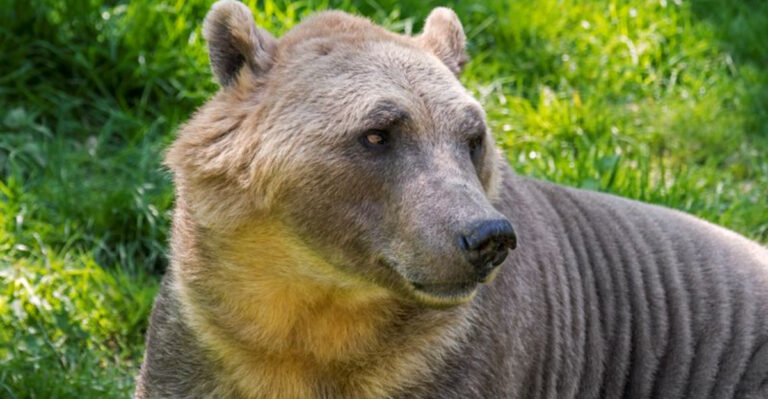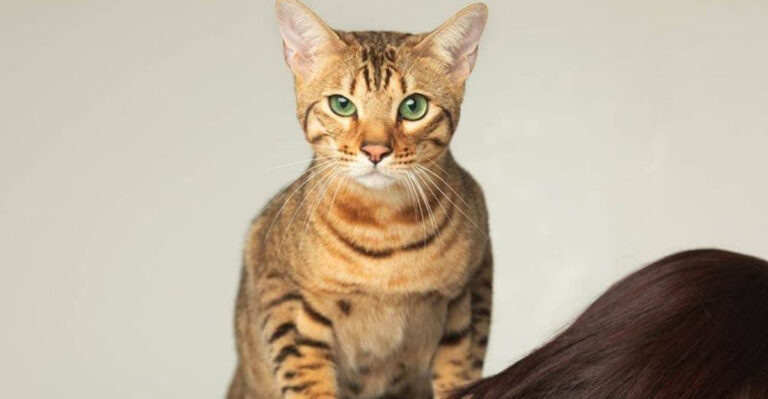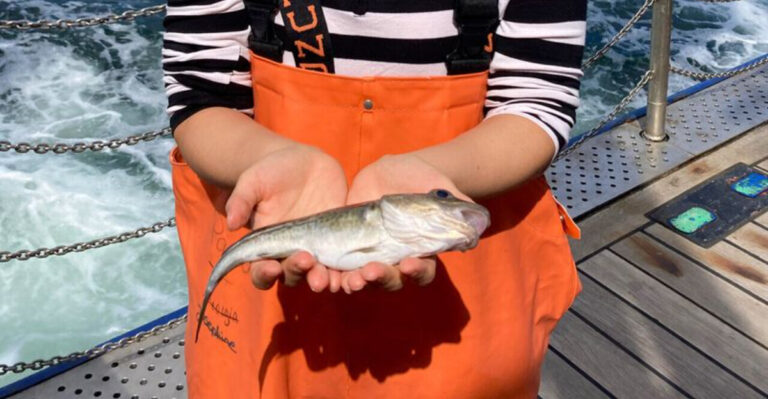11 Easy Tips For Feeding Birds During The Summer Heat
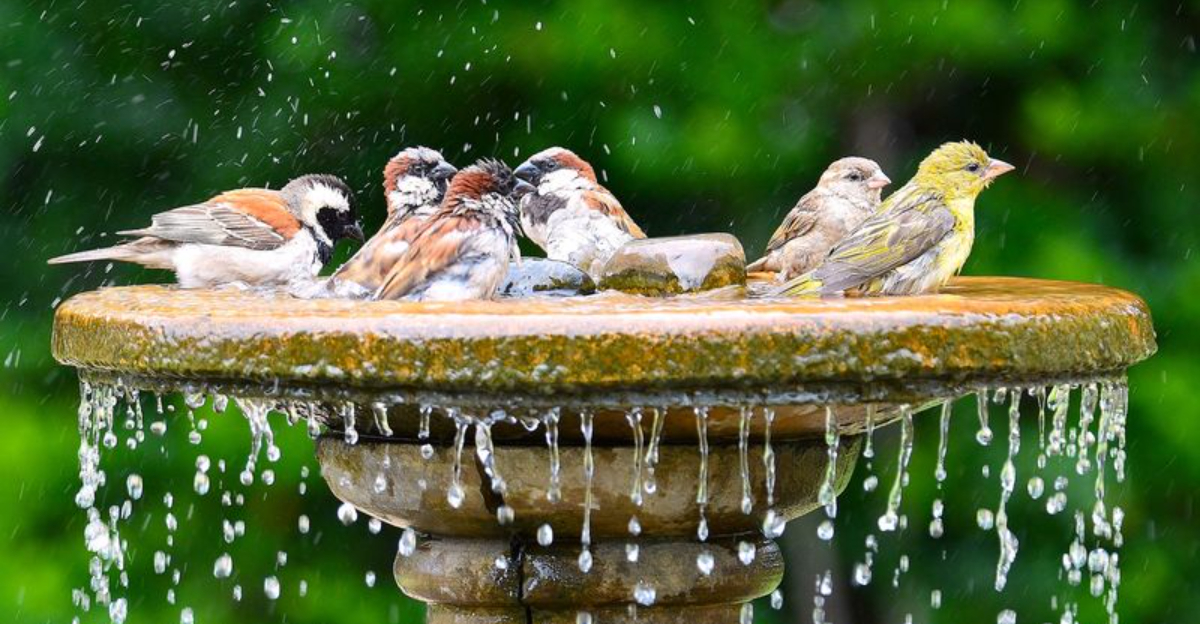
Summer brings unique challenges for our feathered friends. Birds need extra help during hot weather when natural food and water sources might dry up.
Providing appropriate nutrition and hydration during scorching temperatures isn’t just kind—it helps local bird populations thrive when they need it most.
1. Choose Heat-Resistant Feeders
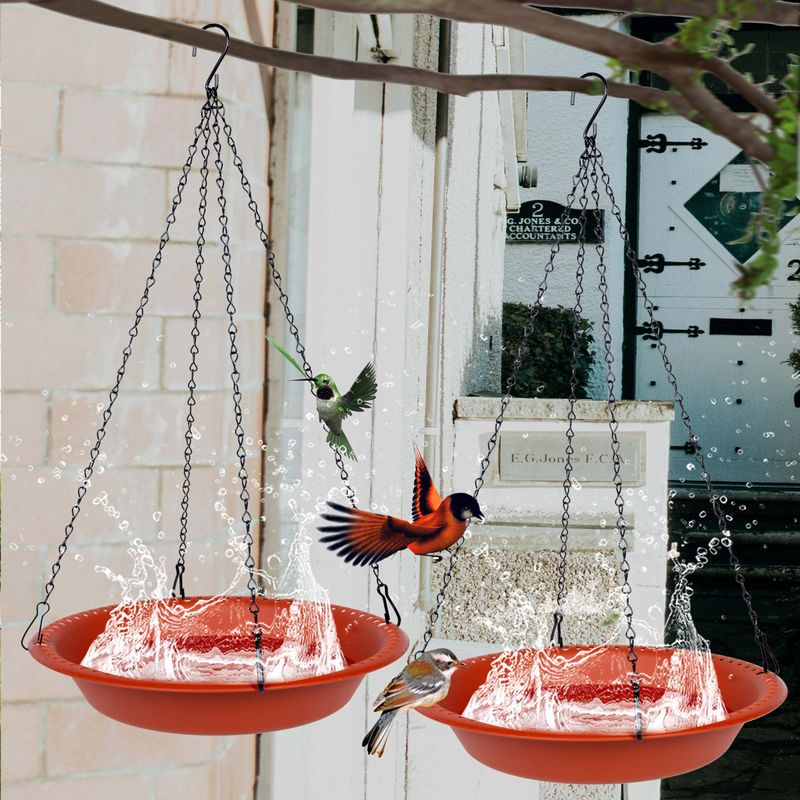
Metal feeders turn into mini-ovens during summer days! Ceramic, recycled plastic, or wooden feeders stay cooler and won’t warp in the sun.
Birds can burn their feet on overheated perches, so material choice matters. Look for light-colored options that reflect rather than absorb heat.
2. Keep Feeders In Shaded Areas
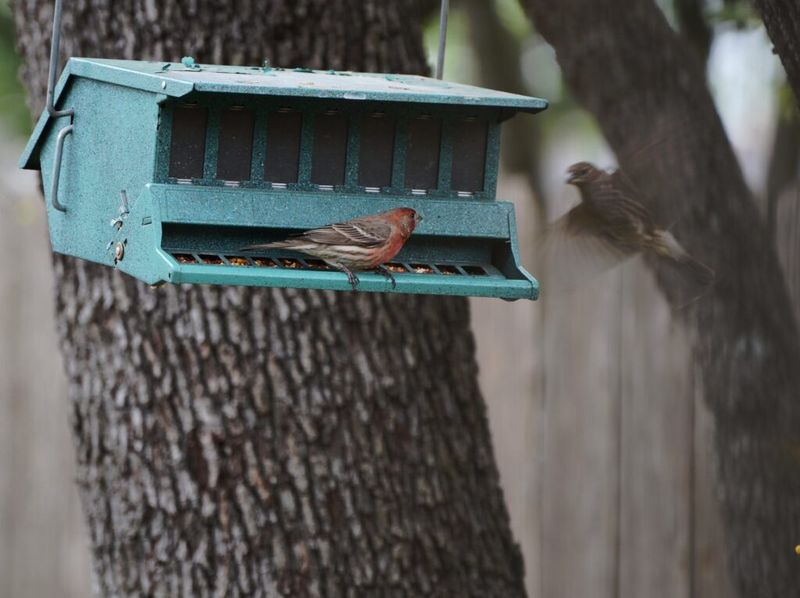
Smart placement prevents seed from cooking in the sun! Hang feeders under tree canopies or porch overhangs where temperatures stay cooler.
The shade benefits birds too, allowing them to feed without direct sun exposure. Morning shade works well since many birds feed early before temperatures climb.
3. Offer Fresh Fruit And Hydrating Foods
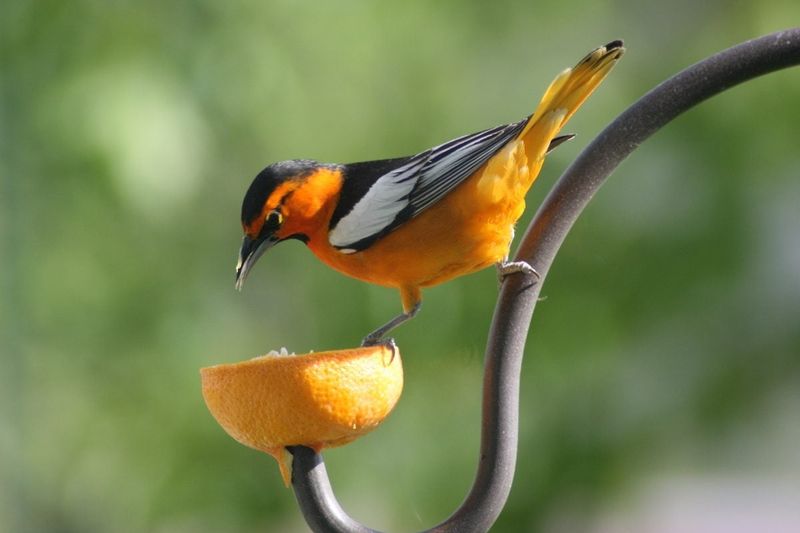
Juicy treats act like natural water bottles! Halved oranges, apple slices, or watermelon chunks attract orioles, tanagers, and other colorful visitors.
Secure fruits on platform feeders or special fruit holders. Berries work wonderfully too—strawberries, blueberries, and raspberries provide both nutrition and hydration.
4. Clean Feeders More Often
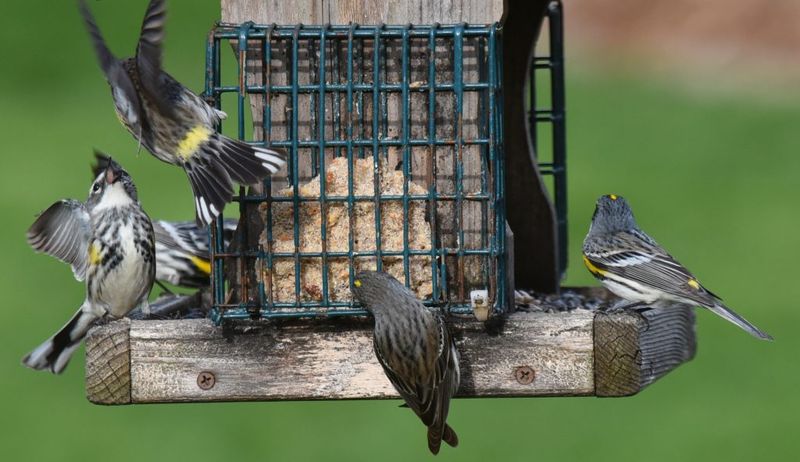
Summer heat accelerates mold growth and seed spoilage. Cleaning feeders weekly with a mild bleach solution (1 part bleach to 9 parts water) prevents disease spread.
Don’t forget to rinse thoroughly and dry completely before refilling. Discard any wet or clumped seed immediately—it’s a breeding ground for harmful bacteria.
5. Avoid Suet Or Use No-Melt Varieties
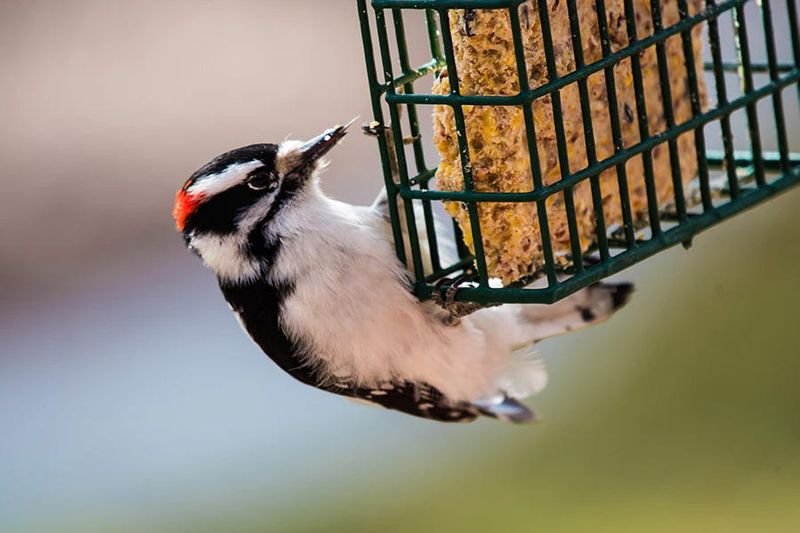
Regular suet becomes a drippy, rancid mess above 80°F! Special no-melt formulations contain less fat and more binders to maintain shape in heat.
Some companies make summer-specific suet cakes with added fruit. If temperatures regularly exceed 90°F, consider removing suet feeders entirely until cooler weather returns.
6. Fill Feeders With Seeds That Handle Heat Well
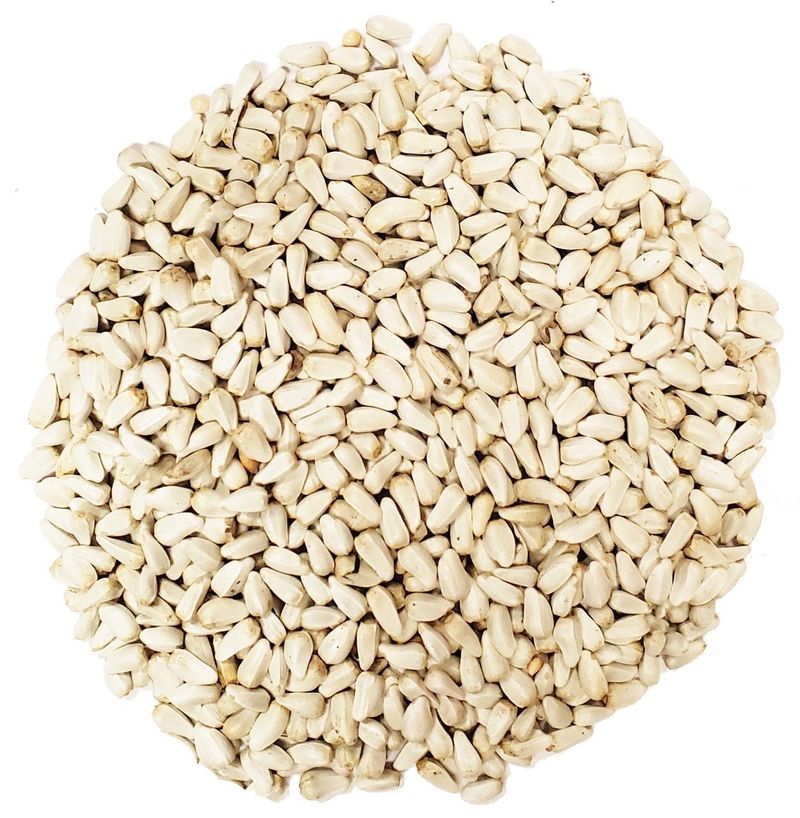
Safflower seeds resist spoilage better than most options! Their thick shells protect the nutritious centers from heat damage.
Nyjer (thistle) seed works well too, especially for finches. Avoid mixes containing millet or cracked corn during extreme heat—they quickly develop mold and attract unwanted pests.
7. Provide A Bird Bath With Clean Water
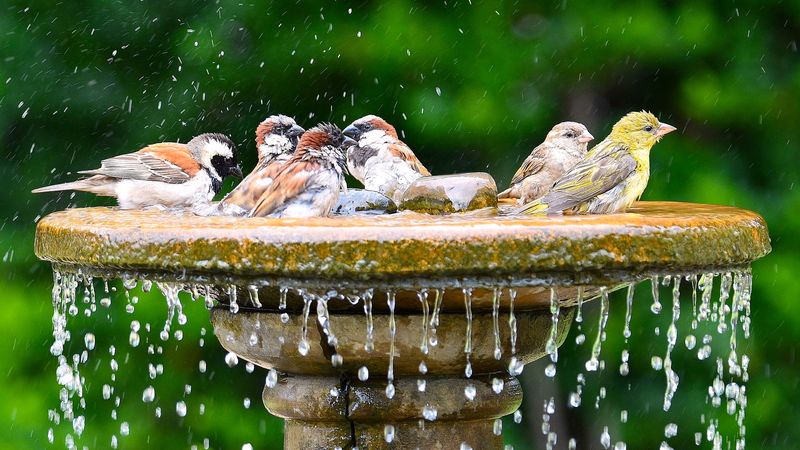
Birds need water for drinking AND cooling off! A shallow basin with gradually sloping sides allows safe access for birds of all sizes.
Change water daily to prevent mosquito breeding and algae growth. Adding a few stones creates perching spots where smaller birds can safely drink without fully immersing themselves.
8. Add Moving Water For Attraction
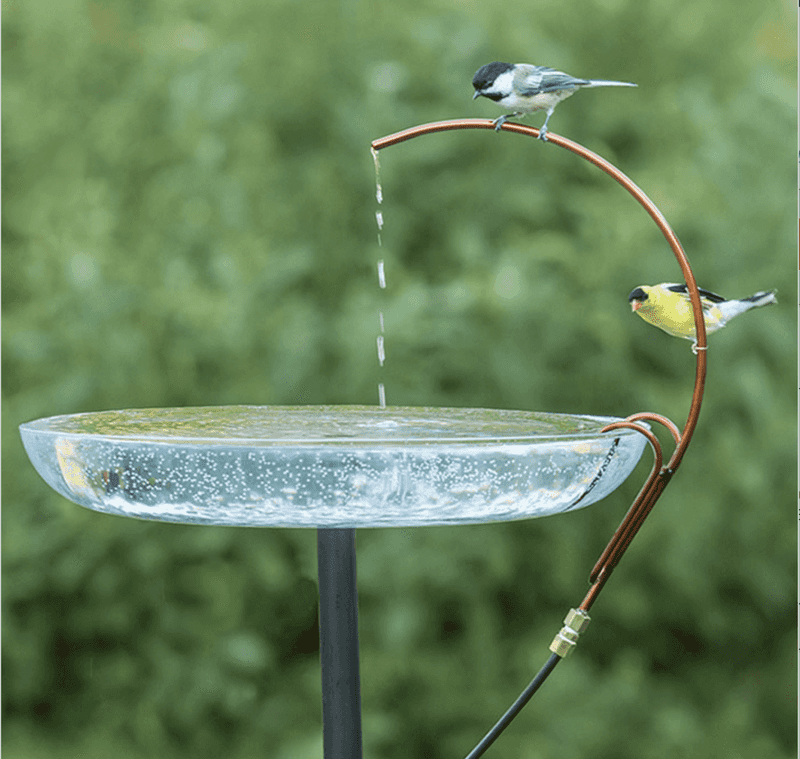
The sound of trickling water acts like a bird magnet! Solar fountains or battery-operated drippers create movement that birds can hear from impressive distances.
Moving water stays fresher longer and deters mosquito egg-laying. Even a plastic bottle with a tiny hole suspended above the bath creates an effective dripper.
9. Feed Early In The Morning Or At Dusk
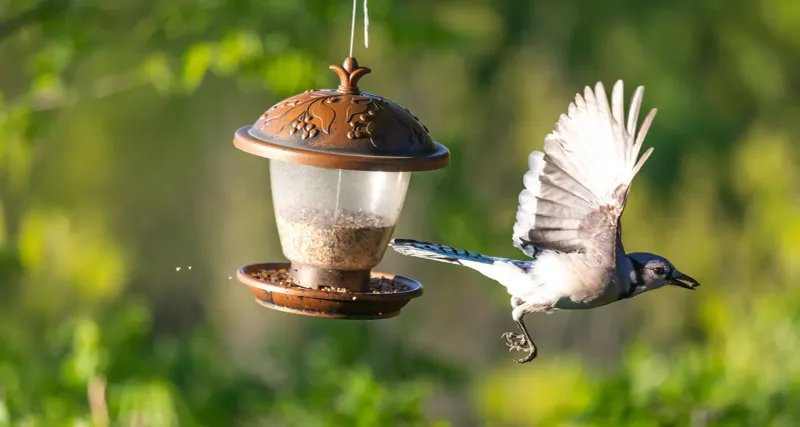
Birds naturally forage during cooler hours anyway! Fill feeders before sunrise when activity peaks, or refill them as evening approaches.
This timing prevents seed from sitting unused during scorching midday hours. Many species, especially in desert regions, remain inactive during the hottest part of the day.
10. Place Feeders Away From Reflective Surfaces
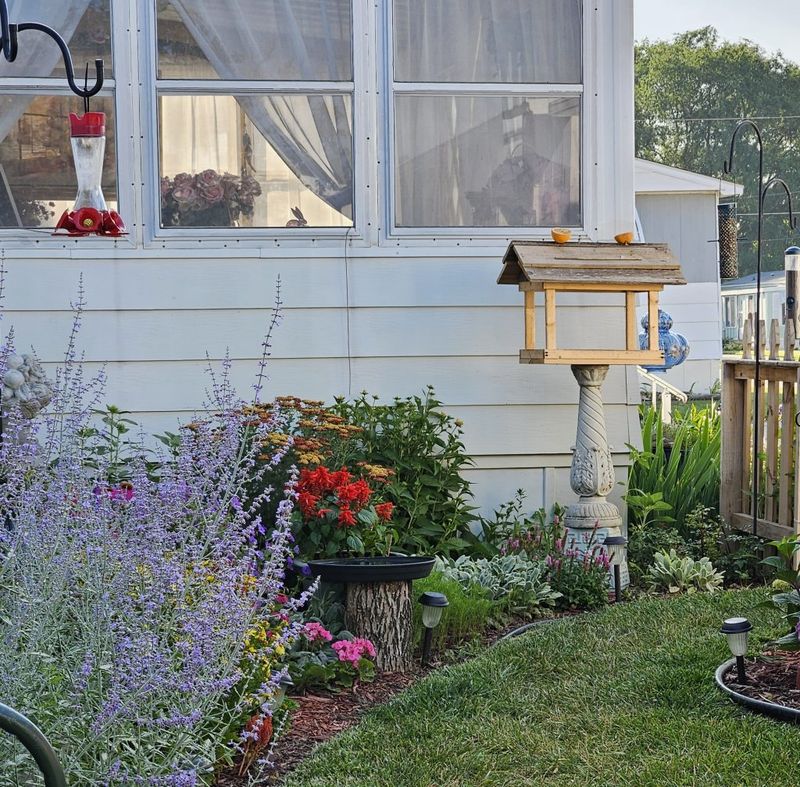
Metal siding, windows, and even light-colored concrete create heat islands! These surfaces reflect and intensify solar radiation, making nearby areas significantly hotter.
Position feeders at least 10-15 feet away from these heat-amplifying materials. This placement also reduces window collision risks, a common cause of bird fatalities.
11. Watch For Signs Of Spoiled Food
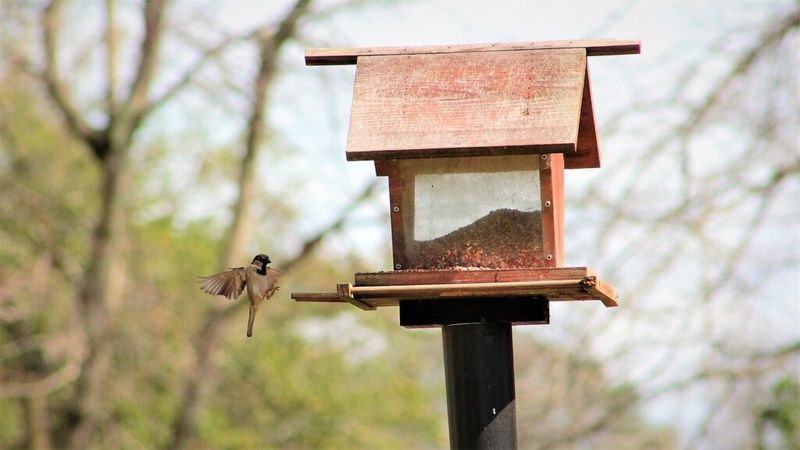
Your nose knows when seed has gone bad! Sour or musty smells indicate mold growth. Discoloration, clumping, or tiny webbing signals insect infestation.
Dump old seed on compost piles far from feeders. Never top off feeders with fresh seed over old—empty completely each time. Rotating stock ensures birds always have fresh, healthy food.

